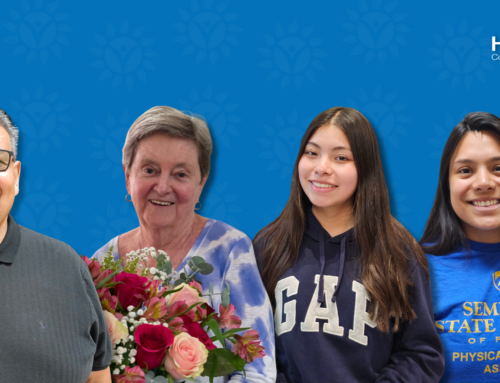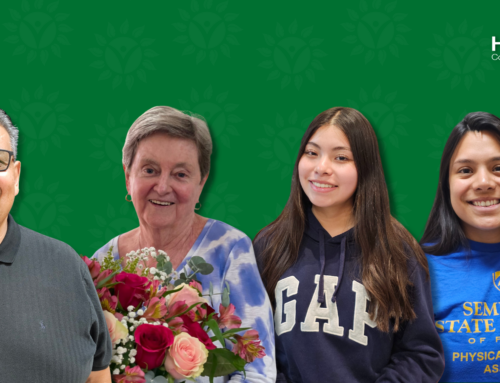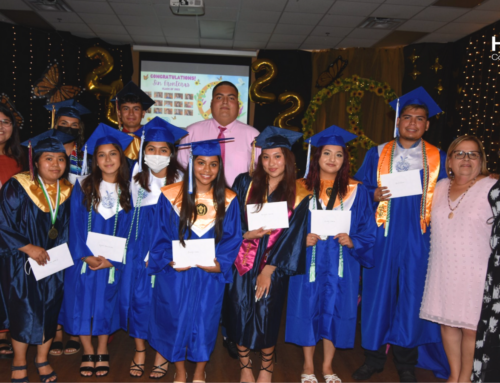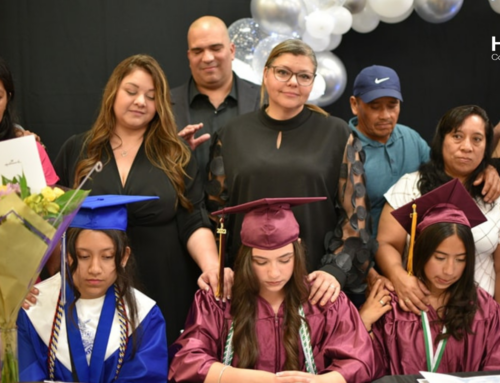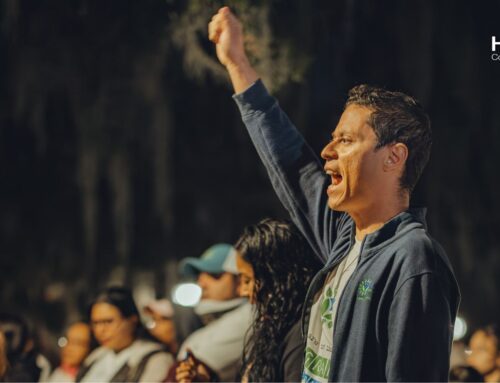Passing of the torch: A continuation of Hope’s legacy

In 1971, three radical nuns arrived in the town of Apopka to devote their time to assisting underserved communities. Shortly after, Sisters Cathy Gorman, Gail Grimes, and Ann Kendrick moved into their house in South Apopka. The Sisters began attending meetings where community members would discuss how to address issues in their neighborhoods. The sisters began working alongside the community to address these issues, which has turned into quite a 50-year-long journey!
That same year, a group of concerned citizens in Apopka were tired of traveling to Orlando to access the Food Stamp office. So, thanks to the Sisters’ hard work and community members’ organizing, the first Food Stamp office opened its doors in South Apopka.
In 1972, it was clear that healthcare was entirely inadequate in South Apopka. So the West Orange Farmworker Health Association opened its doors thanks to community organizing and getting the right people involved.
After tackling these issues, they continued looking at all the problems that needed addressing in the community and decided something needed to be done about the citrus grower’s housing situation in Apopka. So they decided to start an affordable-housing project. Homes in Partnership worked with the Farmer’s Home Administration to obtain federal funding and received its first grant sometime between 1975 and 1976.
In 1982, seasonal and undocumented migrant farmworkers required a safe place to keep their money and sound advice to prevent them from being taken advantage of by predatory lenders. So, Community Trust Federal Credit Unions became that trusted institution to save their cash and avoid keeping it under their mattress at home.

In 1983, the farmworkers achieved their goal of creating the Farmworker Association of Central Florida (FACF) with assistance from the Office for Farmworker Ministry, now known as Hope CommUnity Center, in Apopka and the Sisters of Notre Dame de Namur.
What was supposed to be one year of service in Central Florida for these Nuns turned into a lifetime commitment that has brought on so much positive change through the power of perseverance, courage, and conviction. Hope CommUnity Center’s 50-year story includes challenging work leading to the path towards justice, love, mercy, and BE-Longing, and the legacy continues. We want Más!
That’s where Hope’s new Executive Director, Felipe Sousa-Lazaballet, comes in! Felipe’s journey as a teenage activist leader on the “Trail of Dreams,” traveling from Miami to Washington, D.C., to advocate for immigration reform and chances for undocumented youth to attend college, has come full circle. He arrived back then with blisters on his feet. Today, He comes in as Executive Director of Hope, contributing his unique blend of vigor, ideas, and vision. His expertise in the fight for social justice, equity, and belonging is significant, particularly concerning problems of immigrant and LGBTQ+ rights. He also has extensive ties in the nonprofit and advocacy sectors. He assumes the leadership role in an exciting and novel transition period that builds on Hope’s 50-year journey.
Felipe is the ideal candidate to carry on this march, just as he did 12 years ago, as Hope rises to the challenges of the various and evolving communities we serve. The original Sisters of Notre Dame are still active today, serving as elders, mentors, and advisors to further the mission. Still, the torch has passed onto new and extraordinary leadership, grounded energy, and vision at Hope.
As the foundress of the Sisters of Notre Dame says, “The Good God is so Very Good.“ and “Let your hearts be as Wide as the World.”


